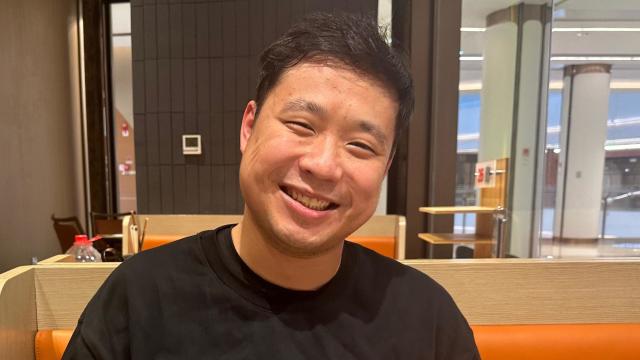China’s overqualified youth are finding themselves in jobs far removed from their academic aspirations in a challenging economic climate. The phenomenon is startling: a high-school handyman holds a master’s degree in physics; a cleaner is an environmental planning expert; a delivery driver studied philosophy; and a PhD graduate from the prestigious Tsinghua University applies to become an auxiliary police officer. These are not isolated cases but a snapshot of a generation navigating a strained job market.
Sun Zhan, a 25-year-old finance graduate, once dreamed of a lucrative career in investment banking. Instead, he now works as a waiter in a hot pot restaurant in Nanjing. “I wanted to make a lot of money,” he says. “But despite searching, I couldn’t find a suitable job.” His parents’ reaction was one of disappointment. “They’re embarrassed,” he admits. “They wanted me to pursue a stable career as a public servant. But this is my choice.” Sun has a hidden agenda: he’s using this time to learn the restaurant business, aiming to open his own establishment. “If I succeed, my family might change their tune,” he says with quiet determination.
China produces millions of university graduates annually, but there aren’t enough jobs in certain sectors to match their qualifications. The economy—weakened by struggles in real estate and manufacturing—has pushed youth unemployment to alarming levels. Official figures reported a rate of 18.8% in August 2024, though the actual numbers may be higher due to changes in measurement methods. Professor Zhang Jun of the City University of Hong Kong observes, “The job situation is really challenging, forcing young people to drastically adjust their expectations.”
Wu Dan, 29, is a finance graduate now training at a sports injury massage clinic in Shanghai. Previously employed at a futures trading company specializing in agricultural products, Wu returned to mainland China from Hong Kong expecting a promising private equity job. Although she received offers, she rejected them due to unsatisfactory conditions. Her family was baffled by her pivot to sports medicine, a physically demanding job with a modest income. “They didn’t understand why I’d choose this path,” Wu recalls. Yet, her mother’s perspective shifted after Wu successfully treated her back pain. Wu now plans to open her own sports injury clinic, finding fulfillment in a career she never initially imagined.
For others, temporary jobs offer a stopgap. Wu Xinghai, a 26-year-old electronic information engineering graduate, works as a film extra in Hengdian, China’s “Hollywood.” Playing roles such as a bodyguard, Wu jokes, “My good looks help.” While the pay is modest, he appreciates the flexibility and freedom. “This is just temporary,” he says, hoping for something more stable. Li, a film directing and screenwriting graduate, has also turned to acting as an extra while searching for work. “The moment you graduate, you become unemployed,” he says wryly, reflecting a sentiment shared by many young Chinese professionals.
Significant sectors of the Chinese economy, including technology, have seen layoffs and deteriorating job conditions. Once-thriving industries now offer limited opportunities, compelling young graduates to recalibrate their ambitions. “Even those with jobs feel lost,” Wu Dan observes. “They’re uncertain about the future and unsure how long they can hold onto their positions.”
Despite the gloom, many young people are embracing this period of uncertainty to explore unconventional paths. Sun Zhan and Wu Dan, for instance, are using their current roles to gain skills for entrepreneurial ventures. This resilience highlights a shift in mindset: success is no longer defined solely by traditional metrics but by finding meaning and purpose in one’s work. “This is the reality in China,” says Professor Zhang. “Young people must redefine what a good position looks like.” For this generation, it’s about adaptability and making the best of unexpected opportunities.




